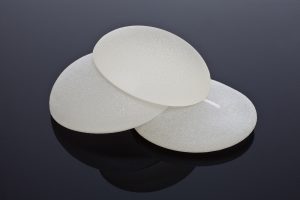
As the patient, you have a big impact on the results of your cosmetic surgery. Preparation can reduce the chance of complications and make the entire process go more smoothly. Here are some guidelines for what you can do to prepare for cosmetic surgery.
- Ask you cosmetic surgeon what he recommends you do in order to prepare and follow his instructions completely.
- Avoid over-the-counter (OTC) medications such as aspirin for about three weeks before the surgery. OTC medications can interfere with clotting and cause excessive bleeding. If you are accustomed to taking OTC medications, ask your doctor for a list of medications that are safe.
- Exercise. If you do not exercise regularly already, start getting some gentle exercise to improve your circulation, flexibility and lung power. This will help prepare your body for maximum healing.
- If you smoke, stop smoking at least two weeks before your surgery. Smoking greatly increases your risk of complications.
- Eat! Starting about two weeks before your surgery forget about dieting. Eat good food. Your body needs all of the nutrients it can get to aid in the healing process.
- Make arrangements for someone to be with you, help around the house, run errands, change dressings, and help care for incision sites for at least the first 72 hours.
- Make arrangements for someone to drive you to and from the operation and make sure you have good driving directions to the facility.
- Fill all of your prescriptions before your surgery.
- Go grocery shopping, cook and freeze two weeks worth of meals, and have plenty of easy snack foods on hand.
- Purchase a thermometer, dressings, gauze, laxatives, eye drops, vitamin C, homeopathic medicines such a Bromelain and arnica (with your doctor’s approval), and any creams or moisturizers your doctor recommends.
- Prepare plenty of icepacks.
- Clean your house, take out the trash, do all of your laundry, and take care of any clerical tasks such as paying bills.
- Black out windows in the room where you will spend your recovery time, so you can rest any time of day.
- Set up a communication system using an intercom, walkie-talkies, a bell, or whistle, so that you can get help within the house when needed.
- Have a phone, preferably with a speaker, by your bed.
- Set up your recovery area with lots of pillows, extra blankets, remote control, books, magazines, journal, favorite movies, anything that will make you comfortable and keep you entertained.
- Make sure that everything you need is within easy reach and that you will not have to stretch or strain.
- If you have small children, arrange for them to stay with someone else for a few days.
- Make a list of things that need to be done on a daily basis such as when, what, and how much to feed pets (include any medications), watering plants, trash schedule, etc.
- Have a bucket by your bedside just in case you vomit.
- Install some nightlights, especially along your path to the bathroom, and have a flashlight in reach in case of a power outage.
- Have a heating pad or hot water bottle handy.
- A few changes of loose, comfortable clothing, a robe, socks, and a headband or hair scrunchies should be within easy reach.
- The night before you surgery, remove any nail polish (which interferes with monitoring oxygen levels), and wash your hair.
- Carefully follow all instructions from your doctor regarding medications, eating, and drinking for the 24 hour period prior to surgery.
- On the day of your surgery, wear loose and comfortable clothing that is easy to get in and out of.
- Take bottled water and some crackers to help with nausea on the ride home.
It is normal to be anxious before surgery. Try to relax the night before your surgery. Taking preparatory steps well in advance of your surgery date will ensure that you are not forgetting anything and that your procedure, as well as your recovery, will go just fine.
If you are planning cosmetic surgery, talk to your doctor today about what you should be doing now to prepare.




